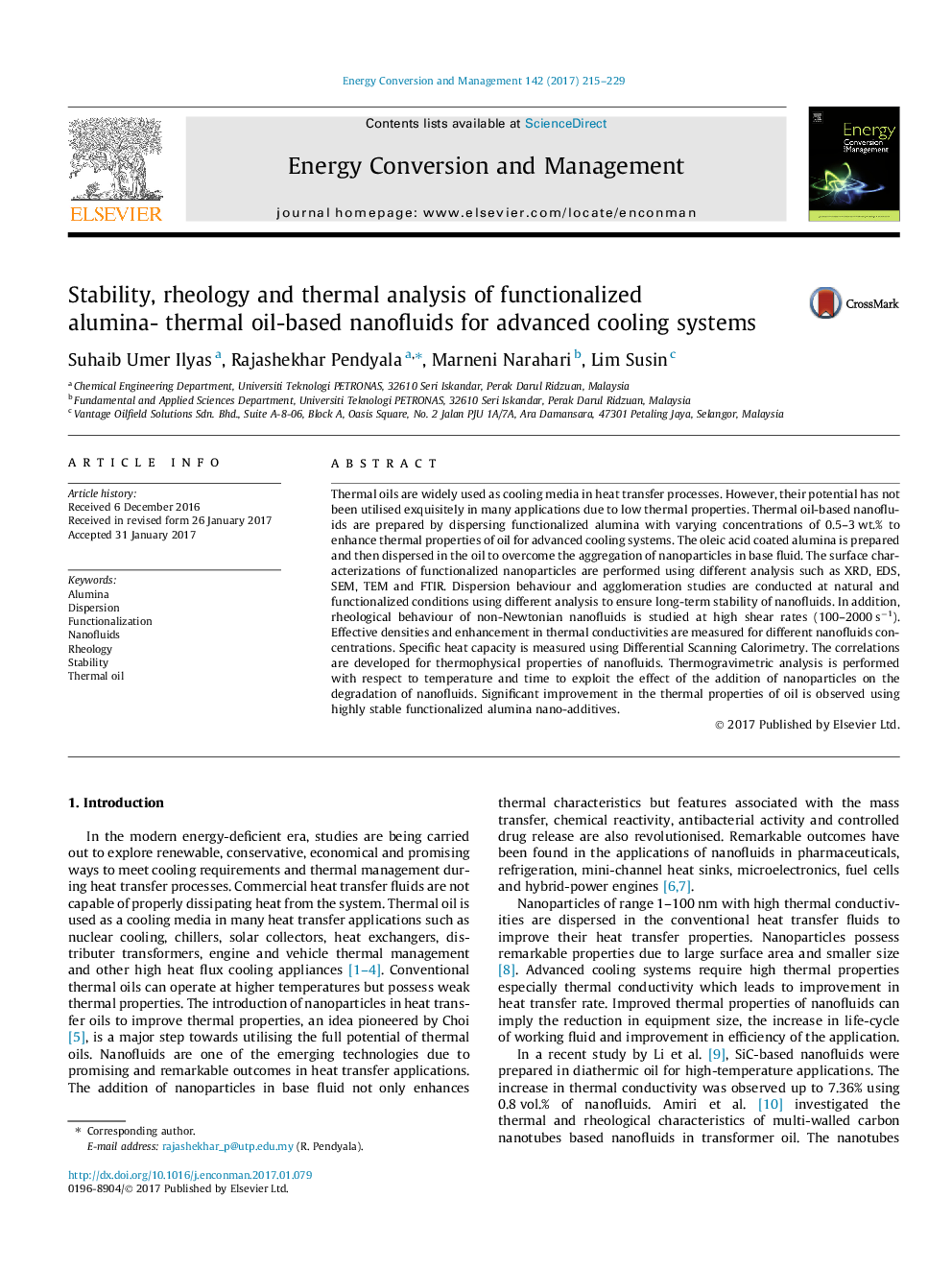| Article ID | Journal | Published Year | Pages | File Type |
|---|---|---|---|---|
| 5012809 | Energy Conversion and Management | 2017 | 15 Pages |
Abstract
Thermal oils are widely used as cooling media in heat transfer processes. However, their potential has not been utilised exquisitely in many applications due to low thermal properties. Thermal oil-based nanofluids are prepared by dispersing functionalized alumina with varying concentrations of 0.5-3Â wt.% to enhance thermal properties of oil for advanced cooling systems. The oleic acid coated alumina is prepared and then dispersed in the oil to overcome the aggregation of nanoparticles in base fluid. The surface characterizations of functionalized nanoparticles are performed using different analysis such as XRD, EDS, SEM, TEM and FTIR. Dispersion behaviour and agglomeration studies are conducted at natural and functionalized conditions using different analysis to ensure long-term stability of nanofluids. In addition, rheological behaviour of non-Newtonian nanofluids is studied at high shear rates (100-2000Â sâ1). Effective densities and enhancement in thermal conductivities are measured for different nanofluids concentrations. Specific heat capacity is measured using Differential Scanning Calorimetry. The correlations are developed for thermophysical properties of nanofluids. Thermogravimetric analysis is performed with respect to temperature and time to exploit the effect of the addition of nanoparticles on the degradation of nanofluids. Significant improvement in the thermal properties of oil is observed using highly stable functionalized alumina nano-additives.
Related Topics
Physical Sciences and Engineering
Energy
Energy (General)
Authors
Suhaib Umer Ilyas, Rajashekhar Pendyala, Marneni Narahari, Lim Susin,
